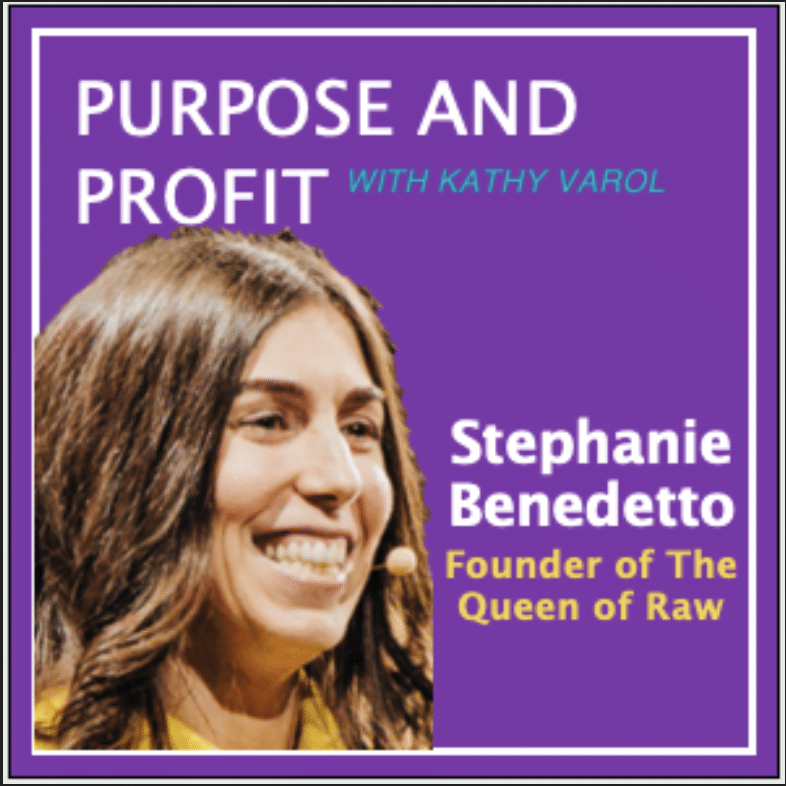Show Notes:
Stephanie Benedetto is the Co-Founder and CEO of Queen of Raw. This award-winning company is turning deadstock pollution into profit through two major channels: 1) its proprietary inventory management software Materia MX, and 2) an integrated deadstock marketplace. Queen of Raw enables fashion companies to sell their excess inventory, while at the same time supporting sustainability compliance measurement and reporting.
Stephanie is a member of Pledge 1% and a founding member of the New York Circular City Initiative. An advocate for women in business and sustainability, her companies have been featured in Good Morning America, The New York Times, and The Wall Street Journal.
In this episode we discuss:
✅ Why deadstock clothing and textiles are often landfilled or incinerated
✅ The $280b+ excess inventory sitting in warehouses worldwide
✅ Why the fashion industry is the 2nd largest contributor to global water pollution
3 episode takeaways (listen to the full episode for a lot more gems!):
1️⃣ There is an incredible opportunity for new marketplaces to enable value creation by tapping into unused resources and capacity. These marketplaces allow supply to meet demand. This is what Airbnb does. This is what Uber and Lyft do. And, this is what Queen of Raw does.
What makes Queen of Raw’s marketplace stand out is the sustainability component at the heart of what it does. With their focus on unused textiles that would otherwise be burned or end up in landfill, the company is enabling a circular economy across the fashion industry by keeping resources in use longer.
***
2️⃣ The early success of Queen of Raw shows the power of a compelling vision that benefits all stakeholders. A key part of this success has been Queen of Raw’s ability to bring in strategic partners—like SAP and UPS—by aligning on values and clearly adding value.
***
3️⃣ Currently, 1.1 billion people worldwide don’t have access to clean water. The World Wildlife Fund has stated that by 2025 two-thirds of the world’s population may face water shortages. That’s in just 2 years.
That statistic is shocking and hard to absorb when 70% of the world’s surface is covered by water. Water seems abundant. The problem is, only 3% of global water is freshwater, and 66% of fresh water is unavailable to use (i.e. frozen in glaciers or otherwise inaccessible). That leaves just 1% of total water as fresh water that we can use. Currently, 70% of that freshwater is used in agriculture, and the amount of freshwater is declining.
The fashion industry contributes to water scarcity in two major ways: 1) through agricultural products used to make textiles like cotton, wool, and leather—as well as any pesticide runoff that contaminates waterways; and 2) through pollution from toxins used in the textile production process—like fabric dyes—that contaminate waterways. Not contaminating what little freshwater we do have is incredibly important.
References:
- Connect with Stephanie on LinkedIn
- Queen of Raw
- Queen of Raw’s low-volume marketplace
- New York Circular City Initiative
- MIT’s Solve

